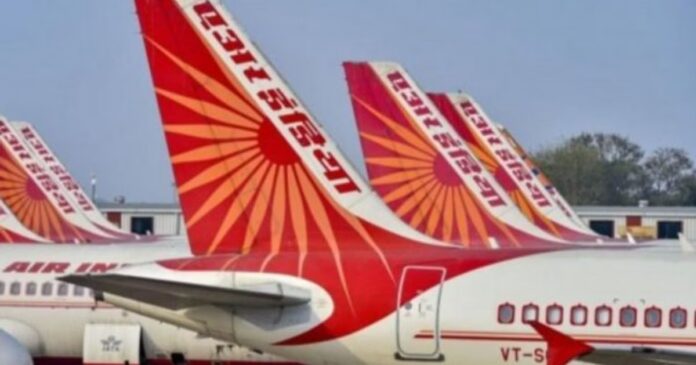Tata Sons Air India transformation is a key priority for Chairman N Chandrasekaran, who reaffirmed his commitment to making Air India a world-class airline. Speaking at the Global Alumni Meet of NIT Trichy, Chandrasekaran outlined his vision to elevate the airline’s global standing by improving its flight experience, customer service, and technological capabilities.
The Tata Group acquired Air India in 2022 through a share purchase agreement with the government, securing the airline for ₹18,000 crore. Chandrasekaran emphasized that his focus is on delivering exceptional service and performance to ensure Air India ranks among the best in the world.
A Vision For A World-Class Air India
“My commitment is to take every effort to make Air India an absolute top-class airline in the world. In terms of hardware, flight experience, customer experience, technology, and in every which way,” Chandrasekaran remarked during the event.
Since the acquisition, the Tata Group has initiated significant upgrades in Air India’s operations, aiming to compete with global leaders in the aviation sector. Chandrasekaran humorously appealed to the audience to assist in pressuring aircraft manufacturers Boeing and Airbus to expedite their deliveries, which are crucial to Air India’s transformation journey.
Massive Aircraft Orders For Air India
Air India has placed an unprecedented order for 470 planes, including:
- 250 from Airbus: A mix of A350 wide-body aircraft and A320 narrow-body planes, including A321 neo.
- 220 from Boeing: Catering to both long-haul and regional travel demands.
In December 2024, Air India further expanded its fleet with an order for 100 wide-body A350s and 90 narrow-body A320s. These acquisitions aim to modernize Air India’s fleet and significantly enhance its operational efficiency and passenger experience.
The Tata Group’s Strategic Aviation Goals
The acquisition of Air India marked a significant milestone for the Tata Group, which has a storied history with the airline. Founded by JRD Tata in 1932, Air India was later nationalized in 1953. By reacquiring the airline, the Tata Group has undertaken the challenge of restoring its former glory and positioning it as a leader in the global aviation market.
Chandrasekaran outlined key focus areas for Air India’s transformation:
- Improved Customer Experience: Upgraded cabins, better in-flight services, and enhanced technology integration.
- Operational Excellence: Modernizing the fleet to reduce costs and improve efficiency.
- Global Competitiveness: Expanding international routes and aligning with industry best practices.
Tata Group’s Foray Into The Semiconductor Sector
In addition to aviation, Chandrasekaran highlighted Tata Sons’ ambitious plans in the semiconductor industry. The company has committed $18 billion to precision manufacturing, semiconductor assembly, and testing.
“Our semiconductor fab should be operational in 2026,” Chandrasekaran announced, emphasizing the importance of building an ecosystem to support this sector. He noted that thousands of companies are expected to emerge within the semiconductor ecosystem in the next 18-24 months.
Opportunities And Challenges In Semiconductor Manufacturing
Chandrasekaran stressed the need for a focused approach and collaboration with academic institutions and government policies to strengthen India’s position in the global semiconductor market. Key aspects of the strategy include:
- Investment In Research And Development: Developing advanced technologies to stay competitive.
- Building Ecosystems: Encouraging the growth of ancillary industries to support semiconductor manufacturing.
- Policy Support: Ensuring favorable government policies to attract investments and enable innovation.
Aligning With India’s Growth Vision
Both the aviation and semiconductor sectors align with the Tata Group’s broader vision to contribute to India’s growth story. Air India’s transformation aims to bolster the nation’s presence in global aviation, while investments in semiconductors aim to position India as a key player in the technology supply chain.
Challenges Ahead For Air India
While the vision for Air India’s transformation is ambitious, several challenges remain:
- Timely Delivery Of Aircraft: With 470 planes on order, delays in delivery could impact operations.
- Infrastructure Upgrades: Modernizing infrastructure at key airports to support a growing fleet.
- Global Competition: Competing with established international airlines in terms of service and pricing.
Despite these challenges, Chandrasekaran’s optimism and strategic focus underline the Tata Group’s determination to achieve its goals.
The Path Forward
Air India’s journey under the Tata Group’s leadership represents a significant step in the evolution of Indian aviation. With a focus on modernizing the fleet, enhancing customer experience, and leveraging technology, the airline is poised to reclaim its position as a global leader.
Similarly, the Tata Group’s investments in the semiconductor industry showcase its commitment to driving innovation and building a sustainable ecosystem for India’s technology sector. As Chandrasekaran highlighted, persistence, collaboration, and innovation will be key to achieving these transformative goals.



